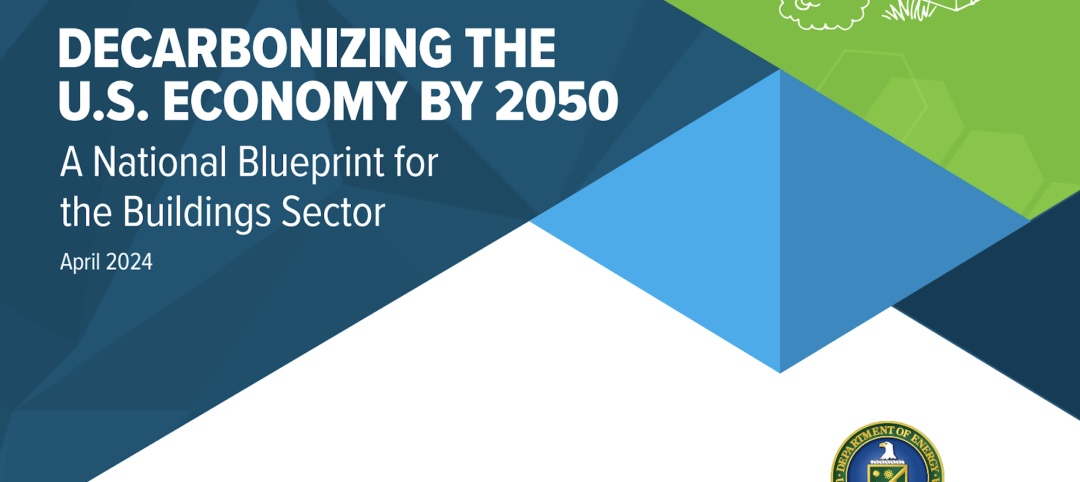Associated Builders and Contractors and the American Foundation for Suicide Prevention recently formed a partnership to address mental health and suicide prevention in the U.S. construction industry.
The partnership aims to improve the mental health of construction workers through effective suicide prevention education, intervention, and postvention strategies, as well as to encourage, equip, and empower mental health champions in the workforce, and introduce collaboration between ABC and AFSP chapters nationwide.
“Safety includes total human health—emotional, social, mental, intellectual, financial, occupational and spiritual wellness—and we must continue to raise the bar for safety for the construction workforce of more than 7.5 million,” said Greg Sizemore, ABC vice president of health, safety, environment, and workforce development, in a news release. “Our people are our greatest asset, and this partnership will take our total human health and safety practices to the next level. Going forward, this is the greatest opportunity to leverage and advance world-class safety for our people, both physically and mentally.”
The partnership will:
· Develop and disseminate education resources on mental health and suicide prevention in workplaces and find and take advantage of opportunities to engage workers.
· Support suicide prevention and postvention education in the construction workplace at all levels of the organizations’ chapters and membership.
· Participate in key events where worker safety and health, as well as safety and health practitioners’ and other professionals’ development are addressed.
· Promote and facilitate the transfer of relevant mental health and suicide prevention and postvention research and findings to practitioners and to the construction workforce.
· Share opportunities with ABC and AFSP chapters on supportive programs and events.
Related Stories
Building Materials | Apr 22, 2024
Tacoma, Wash., investigating policy to reuse and recycle building materials
Tacoma, Wash., recently initiated a study to find ways to increase building material reuse through deconstruction and salvage. The city council unanimously voted to direct the city manager to investigate deconstruction options and estimate costs.
Construction Costs | Apr 16, 2024
How the new prevailing wage calculation will impact construction labor costs
Looking ahead to 2024 and beyond, two pivotal changes in federal construction labor dynamics are likely to exacerbate increasing construction labor costs, according to Gordian's Samuel Giffin.
Codes and Standards | Apr 12, 2024
ICC eliminates building electrification provisions from 2024 update
The International Code Council stripped out provisions from the 2024 update to the International Energy Conservation Code (IECC) that would have included beefed up circuitry for hooking up electric appliances and car chargers.
Urban Planning | Apr 12, 2024
Popular Denver e-bike voucher program aids carbon reduction goals
Denver’s e-bike voucher program that helps citizens pay for e-bikes, a component of the city’s carbon reduction plan, has proven extremely popular with residents. Earlier this year, Denver’s effort to get residents to swap some motor vehicle trips for bike trips ran out of vouchers in less than 10 minutes after the program opened to online applications.
Laboratories | Apr 12, 2024
Life science construction completions will peak this year, then drop off substantially
There will be a record amount of construction completions in the U.S. life science market in 2024, followed by a dramatic drop in 2025, according to CBRE. In 2024, 21.3 million sf of life science space will be completed in the 13 largest U.S. markets. That’s up from 13.9 million sf last year and 5.6 million sf in 2022.
MFPRO+ News | Apr 12, 2024
Legal cannabis has cities grappling with odor complaints
Relaxed pot laws have led to a backlash of complaints linked to the odor emitted from smoking and vaping. To date, 24 states have legalized or decriminalized marijuana and several others have made it available for medicinal use.
Urban Planning | Apr 12, 2024
New York City’s safest year for pedestrians due to concerted effort of street redesign, speed restrictions
In 2023, New York City recorded its safest year for pedestrians since record-keeping began in 1910. In a city of 8.5 million people, 101 deaths were due to vehicles striking pedestrians, less than one-third the number of the early 1990s. New York City ramped up its efforts to make walking and biking safer in 2014 when the city reduced its speed limit to 25 miles per hour.
Codes and Standards | Apr 8, 2024
First federal blueprint to decarbonize U.S. buildings sector released
The Biden Administration recently released “Decarbonizing the U.S. Economy by 2050: A National Blueprint for the Buildings Sector,” a comprehensive plan to reduce greenhouse-gas (GHG) emissions from buildings by 65% by 2035 and 90% by 2050.
Green | Apr 8, 2024
LEED v5 released for public comment
The U.S. Green Building Council (USGBC) has opened the first public comment period for the first draft of LEED v5. The new version of the LEED green building rating system will drive deep decarbonization, quality of life improvements, and ecological conservation and restoration, USGBC says.
Codes and Standards | Apr 8, 2024
Boston’s plans to hold back rising seawater stall amid real estate slowdown
Boston has placed significant aspects of its plan to protect the city from rising sea levels on the actions of private developers. Amid a post-Covid commercial development slump, though, efforts to build protective infrastructure have stalled.

















